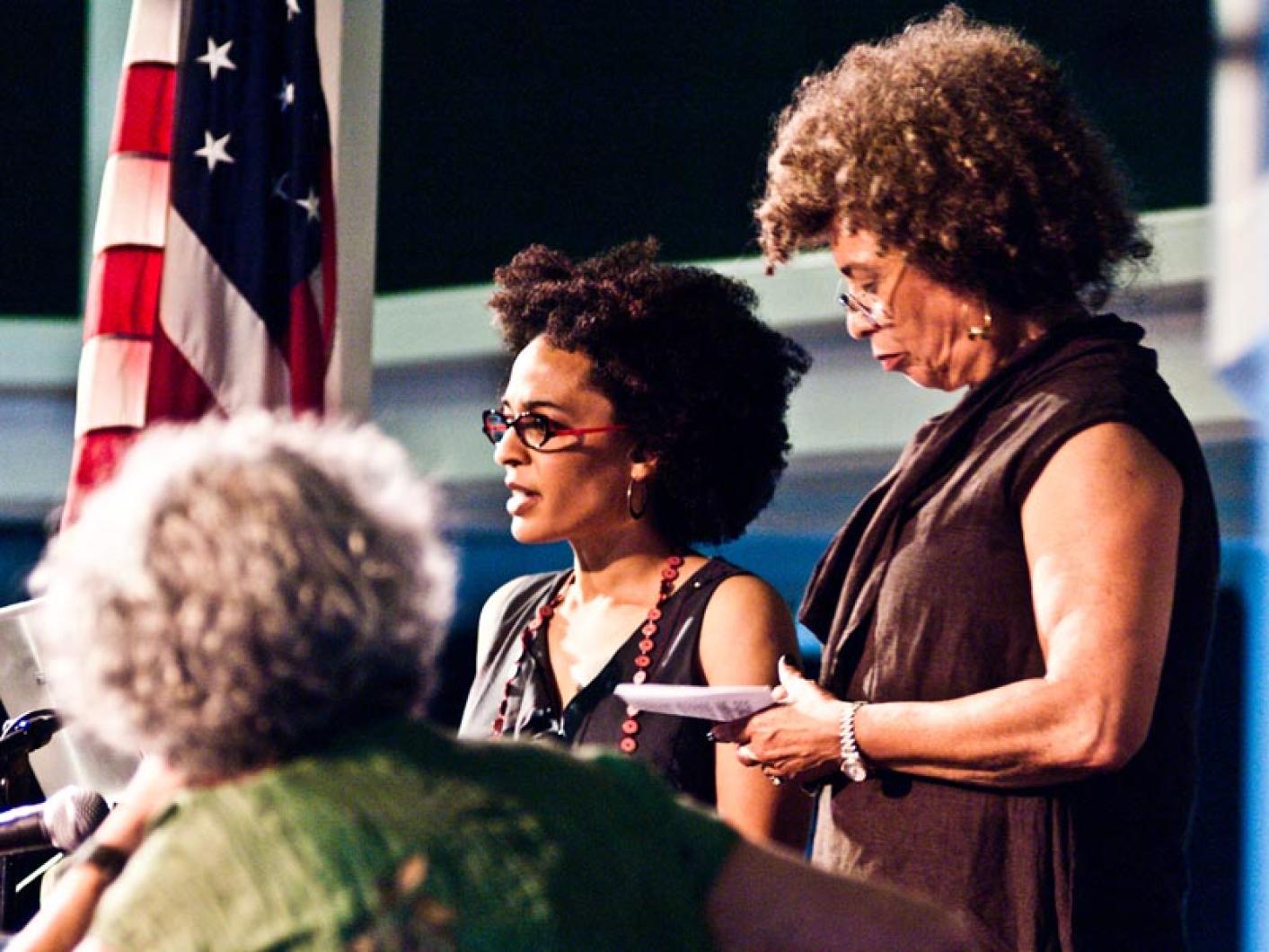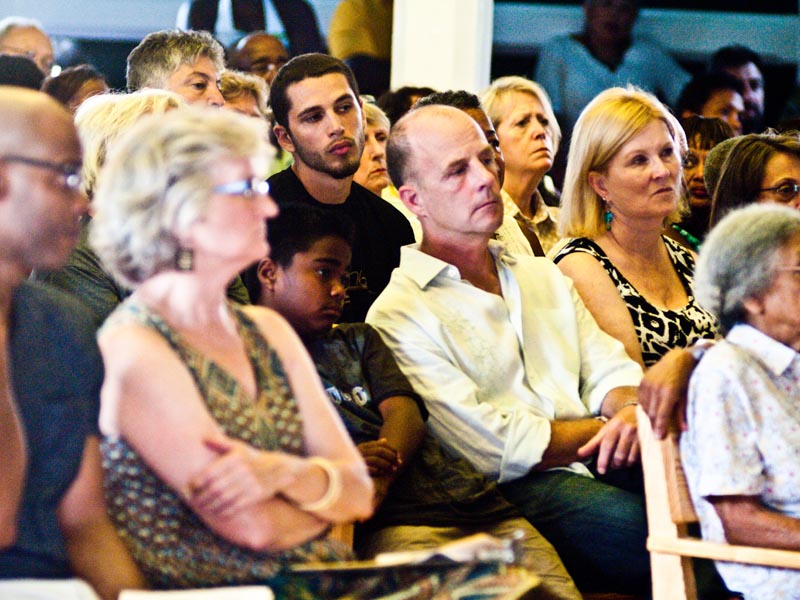Angela Davis is no stranger to injustice. She grew up in Birmingham, Ala. in the era of segregation, was acquitted after being wrongfully imprisoned for 16 months on murder charges, and has, throughout her life, spoken out against all forms of oppression. When she travelled in June of 2011 to Palestine with a delegation of indigenous women and women of color, she felt she was travelling in regrettably familiar territory. What she observed was even more dire than what she had anticipated, she said.
“I was absolutely stunned by what I saw,” she announced to a crowd of 400 at the Union Chapel last Friday night. “As someone who lived through Jim Crow, and spent time in jail facing a death sentence and visited northern Ireland . . . I had not realized that occupied Palestine would produce so much fear . . . I was totally shocked by the overt practice of segregation.”
Ms. Davis and her colleague at the University of California at Santa Cruz, Gina Dent, shared the photographs from their trip and discussed the situation in Palestine at the request of Jewish Voice for Peace, a grassroots organization founded on the ideals of peace, social justice and human rights. It has chapters in more than 20 states and speaks out “against privileging the future of Israel over the future of Palestine,” said Jean Entine, chief organizer of the event and member of the Boston chapter of Jewish Voice for Peace, and a 15-year resident of Aquinnah.
Jewish Voice for Peace has received criticism from other Jewish organizations for not supporting Israel enough. Last Thursday night, at the Hebrew Center in Vineyard Haven, Alan Dershowitz, a well-known Jewish political commentator and lawyer, described the organization as “not Jewish” and “not for peace.” Ms. Davis said she believes many are reluctant to stand up for the injustices committed in Palestine for fear they will be labeled “anti-Semitic.” But she claimed she and the other members of her delegation are “not taking a position against Israelis. We are against the policies of the state of Israel.”
Later, she reiterated, “It’s not an attack on the people living inside Israel. It’s an attempt to expose the policies of the state of Israel so that people of all nationalities and ethnicities will be able to live in a better world.”
Audience members had prepared questions in advance on index cards. During the event Ms. Davis and Ms. Dent selected a few to discuss. One question expressed a concern that the evening only presented the Palestinian side of the conflict, and that audience members might agree with Ms. Davis simply because of her long-standing reputation as an advocate for human rights.
“I assume everyone in the audience thinks for herself and himself,” Ms. Davis responded. “Most of the time, we get very little information about the situation in Palestine. We give you the opportunity of investigating the issue further.”
Attendees were provided with a pamphlet containing the manifesto published by the 11 women who travelled to Palestine together last summer. An insert depicted four maps of the area, showing how Palestinian land has progressively decreased since Israel’s founding in 1948.
Ms. Davis spoke to the similarities she saw between the segregated South and current social issues in the state of Palestine. She and Ms. Dent both showed a photograph taken of a sign which read, “Only authorized vehicles may pass.” She said the euphemistic language prohibited the passage of Palestinian vehicles.
“There were highways within occupied Palestine where Palestinians are not allowed to drive on . . . everywhere we went, we were reminded that Palestinians do not enjoy the same rights and privileges as Israelis,” Ms. Davis said. “It brought back the memories that were many decades old. Growing up in Birmingham, Alabama there were streets we were not allowed to cross because there were white people on the [other side of the] street,” Ms. Davis said.
She also spoke about a group of Palestinians who invoked the civil rights struggle by carrying posters featuring the iconic image of the freedom riders leaning out of the buses to display their protest signs to passersby. The Palestinian posters read, “In less than an hour, Palestinians will be taking inspiration from African American freedom riders, as they embark on a similar freedom ride.”
Near the end of the talk, Ms. Davis quoted Martin Luther King Jr., in saying, “Injustice anywhere is a threat to justice everywhere.”
This was the first event Jewish Voice for Peace had organized on the Island. “I think the context that this delegation can put the struggle in is an important context,” said Judith Glaubman, member of Jewish Voice for Peace, who stressed that her Jewish relatives had lived in Palestine since the 19th century.
Ms. Entine recognized specifically the “wonderful participation from the African American community,” at the event Friday evening. She said she chose Union Chapel in part for its location in Oak Bluffs, a town with a long tradition of African American residents and visitors.
“We are trying to broaden the discussion to other points of view and different constituencies,” Ms. Entine said. “We are trying to increase the number of people who know about these kinds of issues . . . The opportunity to have the event in a diverse community like this is really a godsend.”








Comments
Comment policy »